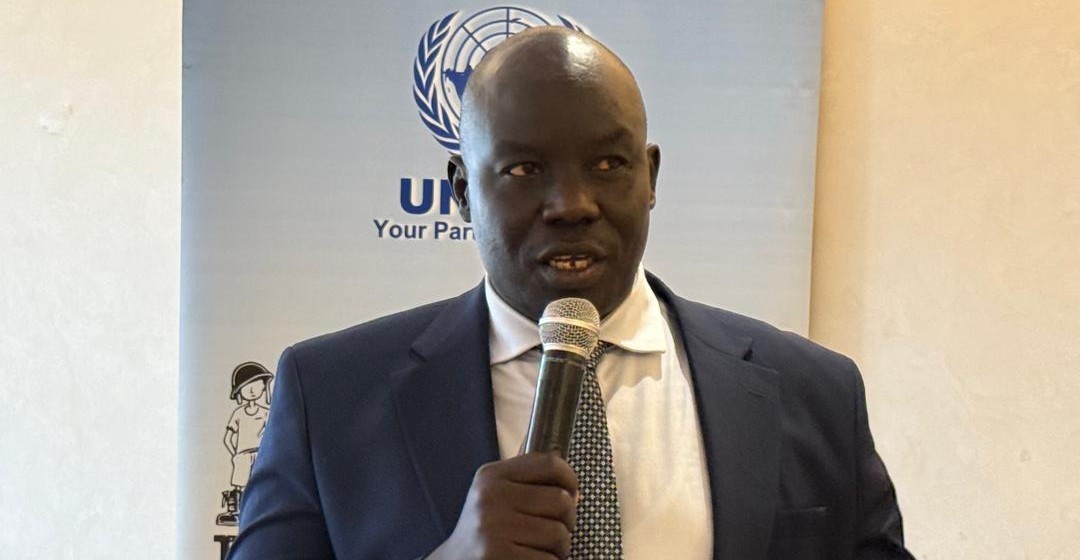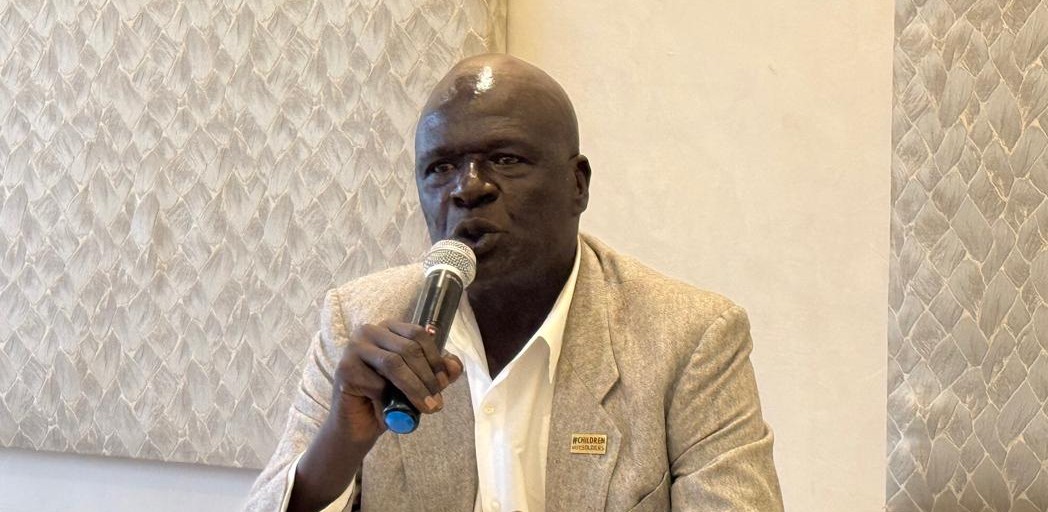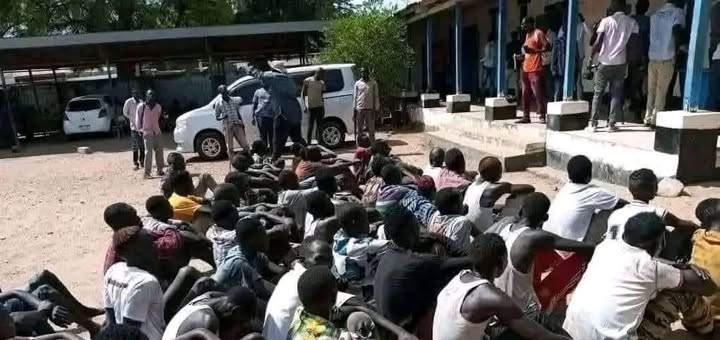
In the dim corridors of Juba’s police stations, freedom has become a transaction. Mothers whisper of officers demanding money, fathers sell goats and land, and families live in fear that one day, their sons will not come home.
It begins with an accusation: “gang member.” No proof. No paperwork. Just an arrest. What follows is a quiet negotiation, where the currency is desperation.
“They said if I don’t pay, my sons will be taken far away,” said 62-year-old Bauda Amina, recalling the night police officers seized her boy outside a small kiosk.
“I begged them, I cried, but they said, ‘You want them free? Then pay.’
Across South Sudan’s capital, parents recount the same ordeal, teenagers arrested without charge, crammed into overcrowded cells, and released only after payments ranging from 300,000 to 500,000 South Sudanese Pounds, roughly $100.
Police claim the raids target gangs. But interviews with lawmakers, rights groups, and affected families reveal something darker: a system of extortion disguised as law enforcement.
For Nyuka Keji Lemi, a mother of four, the nightmare began when her two sons, Lomeling, 17, and James, 15, returned from Uganda last August to visit their ailing father in Juba.
“They came home because their father was seriously ill. One evening they went out to buy some drinks and they never came back,” she said.
When neighbors told her that police had rounded up young boys in the area, Nyuka fainted. She had spent all her savings on hospital bills.
“We searched every station in Gudele, Buluk, and Munuki but no one would tell us anything whereabout my children,” she said.
By dawn, her desperate search led her to the New Dawn sector, in Hai Baraka, a joint security operations center infamous among locals.
There, she found her two sons locked inside a tiny toilet with seven other boys, pressed shoulder to shoulder, standing for lack of space to even sit down.
“When I asked what my boys had done, one officer said they were gang members,” she said bitterly. I was like but these boys had just arrived from Uganda. They didn’t even know anyone here.”
To her disbelief, the officers told her that her sons’ freedom would cost 300,000 South Sudanese Pounds each.
Nyuka had no money left. “I borrowed 500,000 pounds,” she whispered. “Just to buy my children’s freedom.”
“We were arrested while watching football in our usual place,” recalled Okua, one of the victims. “At the station, they called us gang members and warned us not to tell our parents the truth. The officers said anyone who talked too much would be sent to Nasir. So everyone kept quiet, hoping their families would pay for their release.”
Even lawmakers admit the abuse is widespread.

“Even MPs’ children have been taken and their parents had to pay for their release. Everyone in Juba knows this,” said Samuel Buhori Lotti, Deputy Chair of the Parliamentary Committee on National Security and Public Order.
He said children as young as 14 have been detained during the operations.
“We have cases where boys died in custody. Two were found dead in one of the sectors, locked overnight inside a toilet,” lawmaker Lotti told to SZN.
He warned that such operations are fueling child disappearances and forced transfers.
“Many of the arrested children are later found in Malakal, Bor, or Nasir in frontline areas and some never come back,” he said.
Lotti said parliament had summoned both the Minister of Defence and the Minister of Interior to explain the violations, but hearings were delayed by court disruptions.
“We cannot continue to lose our children to the frontlines, this must stop.”
In a city where inflation has crushed the poor, such ransom-style arrests have become a quiet epidemic. Families sell livestock, borrow from neighbors, or take loans just to get their children back.
The average civil servant earns less than 80,000 South Sudanese pounds a month, wages that are rarely paid on time a fraction of what some police officers allegedly demand.
Oluku Andrew, the National Coordinator for Child Disarmament, Demobilization and Reintegration (DDR), admitted that child arrests and forced recruitment remain widespread but said efforts are underway to renew the Comprehensive Action Plan to End and Prevent the Six Grave Violations Against Children, which expired in October 2025.
“Protecting children is not a favor, it is a shared national responsibility,” Oluku said.
He explained that South Sudan’s first action plan was signed in 2009, but conflict and economic hardship have deepened the crisis.
“As the war continued, violations grew from recruitment to abductions, sexual violence, and killings,” he said.
Oluku said logistical and funding shortages have slowed the plan’s renewal. Some members of the monitoring committee have no means to reach the field,” he admitted.
“But this cannot be an excuse. Protecting children is urgent,” he added.

Human rights advocate Edmund Yakani, Executive Director of the Community Empowerment for Progress Organization (CEPO), said the situation exposes a dangerous trend where the same state institutions meant to protect children are now part of their abuse.
“Our future is under threat as long as our children are still being forced into uniforms and both political and communal forces continue to exploit them,” Yakani said.
He urged citizens to hold leaders accountable: “Don’t just blame MPs. Go to Parliament, follow the motions, and demand answers. Accountability begins with us.”
Patricia Njoroge, Chief of Child Protection at the United Nations Mission in South Sudan (UNMISS), said the mission is working with the DDR Commission to trace and reunite detained children with their families.
“Each of us from lawmakers to local leaders has a role to play,” Njoroge said. “The UN can only support. Real change must come from within South Sudan.”
She urged the public to report violations and emphasized that child protection must become a national priority, not just an international concern.
“Together, we can protect these children,” she said. “And give them back their future.”
As Bauda Amina sits outside her small house in Juba, she still trembles when she hears a knock at the door. Her sons are home now thinner, quieter, and afraid to walk outside at night.
“They don’t smile anymore,” she said softly. “When they see a police car, they run.”
For mothers like Bauda and Nyuka, the price of freedom has left scars that no money can heal.
In a country still struggling to recover from years of conflict, their stories reveal a painful truth: in South Sudan, freedom itself has become a commodity and innocence, the currency to pay for it.
Brig. Gen. James Dak Karlo, Director of the Special Protection Unit and Child Affairs in South Sudan’s Ministry of Interior, says his office is aware of ongoing police operations targeting organized youth groups across Juba but has not received any official reports of parents being asked to pay for the release of their detained children.
“I had no such information but it is good for me to take this up and investigate if such things are truly happening,” Gen. Dak said.
He emphasized that his department stands ready to take firm action against any officers found guilty of exploiting minors or extorting money from their families.
“For us to act and punish that criminal act against our children, including women, in the name of police, we need information. We have been asking the public to report such acts to us,” he explained. “
The Special Protection Unit and Child Affairs Department, under the Ministry of Interior and working closely with the Ministry of Gender, Child and Social Welfare, is mandated to safeguard the rights and welfare of children and women, especially in cases involving law enforcement or conflict with the law.
According to the United Nations, there are six grave violations that constitute serious breaches of children’s rights in situations of armed conflict. These include:
Recruitment and use of children by armed forces or armed groups, killing and maiming of children, sexual violence against children, attacks on schools or hospitals, abduction of children and denial of humanitarian access to children.


